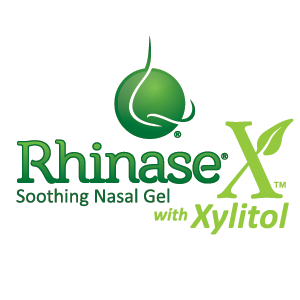
Mastering Nasal Dryness: The Essential Strategy for relief and Management
Protect
Safeguard your nasal passages from further irritation and dryness by avoiding triggers such as dry air, pollutants, and allergens. Use a humidifier to maintain optimal indoor humidity levels, wear a scarf or mask while outdoors, and use nasal moisturizing and protecting products.
Moisturize
While rinsing with saline can provide temporary relief by clearing out irritants, addressing the underlying cause of dryness is crucial for long-term management. Opt for a nasal moisturizer that is more than just saline, containing multiple moisturizers to replenish lost moisture and restore the natural balance of your nasal mucosa. By providing sustained hydration, you tackle the root of nasal dryness, preventing the body from overproducing mucus in an attempt to self-moisturize.
Preserve
Preventing additional moisture loss is just as important as adding new moisture. Take proactive measures to preserve the moisture in your nasal passages by avoiding things like cigarette smoke, strong chemicals, and excessive nose blowing. Stay hydrated by drinking plenty of water throughout the day, as adequate hydration supports mucous production and maintains nasal moisture levels. Use moisturizing nasal sprays that continuously add moisture throughout the day formulated to the pH of your nose, Additionally, consider using nasal gel before bedtime to create a protective barrier and prevent moisture loss overnight.
BY FOLLOWING THESE THREE STEPS- PROTECT, MOISTURIZE, AND PRESERVE- YOU CAN EFFECTIVELY MANAGE NASAL DRYNESS AND PROMOTE OVERALL NASAL HEALTH.
Contact
A closer look at the science of nasal dryness:
-
Dry versus healthy nasal passages:
A healthy mucosa traps allergens and debris trapped in the mucus and then the mucus flows on top of the ciliary layer and then is carried away with the motion of the nasal ciliary and swallowed. When the nose is dry, the ciliary layer is no longer effective, and you end up with dry boogers or the nose tries to compensate by producing excess mucus causing congestion and a runny nose. You may therefore think you nose is wet and has too much moisture but it actually is dry.
-

How does your nose get moisturized?
Nasal sprays of saline are great for rinsing but don't really moisturize for long. You need a product that has built in moisturizers or as we call them, wetting agents. In addition you want to work with the bodies natural process of moisturization. Every cell in your body has something called a sodium/potassium pump that controls the flow of sodium and potassium which in turn controls the passive diffusion of water in and out of the cell. Its obvious therefore that you need both sodium and potassium in your nasal moisturizer to work most effectively with your body naturally. Many sprays only contain sodium.
-
Keep as much moisture in the nasal mucosa as you can.
Its not just about adding moisture to the nose, its also about keeping whatever moisture you can. Wetting agents act as a protective layer that not only ensures broad coverage, it also helps to retain moisture by not leaving it escape because of how wetting agents work. Make sure the products you use have wetting agents.
-
Importance of pH
The normal pH of the nose is between 5-6.5 which helps to minimize the growth of bacteria in the nasal passages. Nasal products can have an effect on pH as the pH is sometimes isotonic (ie pH 7.0) or hypertonic (greater than pH 7.0) but this change in pH can lead to further dryness, infections or may even interfere with the nasal steroid products you may be taking. Steroids are specifically formulated to have a pH of around 6.2 and when the pH is altered by say a saline spray, this can make the steroid itself less effective.
-

Why you don't want Aloe in a nasal product:
Aloe is commonly used to treat irritated skin but we dont recommend it it nasal products for several reasons. First it comes from a plant and people can have allergies to aloe vera. Also some studies have suggested that aloe might even be toxic to the lining of the nasal mucosa. Look for products that dont have aloe.

Expert Insights: Understanding the Importance of Addressing Dry Noses
We spoke with leading healthcare professionals and experts in nasal care to gain valuable insights into the significance of addressing dry noses for overall nasal health. A board-certified otolaryngologist, emphasizes, 'Dry noses can lead to irritation, inflammation, and even nosebleeds if left untreated. Maintaining nasal moisture is essential for supporting the natural functions of the nasal passages and protecting against infections.'
An allergist and immunologist, adds, 'Chronic nasal dryness can disrupt the mucosal barrier, making the nasal passages more susceptible to allergens and irritants. By addressing dry noses promptly, individuals can alleviate discomfort and reduce the risk of developing more serious nasal conditions.'
These expert insights underscore the importance of prioritizing nasal moisture and addressing dry noses as part of a comprehensive nasal care routine. By maintaining optimal nasal health, individuals can breathe easier and enjoy improved overall well-being.
Patients sign up here!
Collections
-

All Products
Nasal Moisturizers, Deodorants, Beauty Products and More!
-

All Natural Nasal Moisturizers
Sesame Oil Nasal Spray is 100% natural source sesame oil and lubricates...





